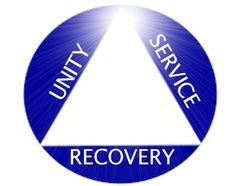Think of this as Volume 17, Number 29 of the newsletter I have written weekly since March, 1997. Enjoy.
As drugs were to the 1970s, so guns are
to our time.
Drugs like heroin, LSD and cocaine gave
an illusion of pleasure and invulnerability to people 40 years ago.
Guns today also provide an illusion of safety, and invulnerability.
The sense of invulnerability in the
1970s is exemplified by J.J. Cale's song “Cocaine,” from 1976.
“She don't lie, she don't lie, she
don't lie…cocaine.”

the main lyric. But, of course, cocaine does lie. It's always lied.
It lied to John Pemberton (who included it in his original formula
for Coca-Cola) and it lied to Sigmund Freud (who thought it
therapeutic).
It was lying to Eric Clapton when he recorded the song – he has
since claimed that it's subtly anti-drug. (That's right, and Bruce
Springsteen's “Born in the USA” was an anti-Reagan song. The
music means what the public decides it means, not what the artist
intends.)
Guns are a lot like cocaine. We know
they're dangerous, but in a dangerous time those who are addicted
insist they're not. Every week, little kids are dying from finding
guns in parents' drawers and playing with them,
just like crack babies died in the 1980s.

than cocaine, than LSD, than heroin, because they instantly kill
people who have nothing to do with them. For instance, a waitress near the New Jersey border with Pennsylvania
was hit in the back by a .22 caliber bullet while working on the
bar's deck. Just one of 45 incidents compiled by David Waldman by
googling through newspapers.
A University of Pennsylvania study in
2009 showed gun owners more than 4 times as likely to be shot, and
more than 4 times as likely to be killed, by guns, as non gun owners. You could say the same thing about cocaine 40 years ago – users
were probably that much more likely to die young than non-users.

like arguments against drug prohibition, with the added lunacy that
the Second Amendment is “absolute.” (No amendment is.) They also
sound increasingly irrational. But what do you expect when it's those
who are addicted to something who are doing the arguing for it.
The solution here is not in the hands
of the state, and it's not in the hands of non-gun owners. It's in
the hands of gun owners. Prohibition didn't end alcohol addiction in
the 1920s, and gun laws won't end gun addiction in our time.
The way forward is the same sort of 12
step program alcoholics go through. Admit you're an addict, find a higher power, make an inventory of the
gun addiction and then start trying to make amends. You live without
guns one day at a time. It's the only way.
What will it take for this to happen?
What will it take for people to “just say no” to guns?
Based on history, it's going to take
time. The drug culture raged throughout the 1970s, in large part,
because people chose that culture over a mainstream culture that had
rejected them.

the 1970s, they ceased caring of things outside themselves, and they
found solace in physicality of all sorts – sex, drugs, rock and
roll, even running. Most of those who dropped out had been liberals,
they'd been against Nixon and against the war, they'd been for civil
rights. But their views were rejected, soundly, repeatedly, and they
dropped out.
The numbers on drug addiction, of
course, didn't start trending decisively downward until the society
began to age out. Addiction is, by and large, a young person's game.
They can handle it, and they can lie to themselves that the damage
they see in the mirror isn't real.
It's also, mainly, a man's game. Yes,
there are female addicts. But most women I know who went into
addiction followed a man there.
The same is true for gun addiction. Gun
addicts increasingly realize that society is rejecting them. Their
politics are increasingly unpopular. Hiding behind gun addiction is
one great way to ignore all that, and claim it's not happening.
But it's a lie. Addiction of all kinds
is a lie you tell yourself.
How someone reaches the bottom here is
unclear to me. Is it when their kid is killed after finding one of
their guns, or when the cost of buyng guns and ammunition starts
taking away from other things? Or does it happen slowly, as the gun
owner realizes how much money is being wasted, and slowly tapers off?
I don't know. I do know that this is
not something I, a non gun-owner, can solve. It's not something the
state could solve, even if all guns were prohibited tomorrow. It's
something only a gun owner can solve, by putting down the weapon, by
separating it from its ammunition permanently, and eventually by
walking away.
Hopefully, our nation's past experience
with alcohol and drug addiction will accelerate that process. But I'm
not holding my breath. When the solution to a problem lies in people
changing, the only thing you can do is walk away, and wait.










